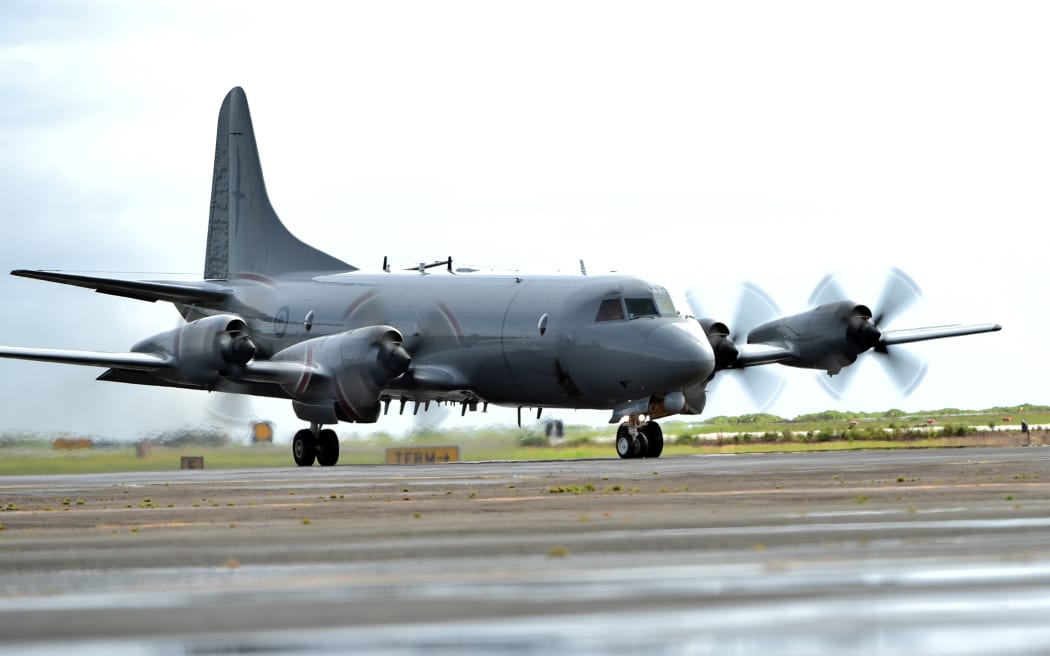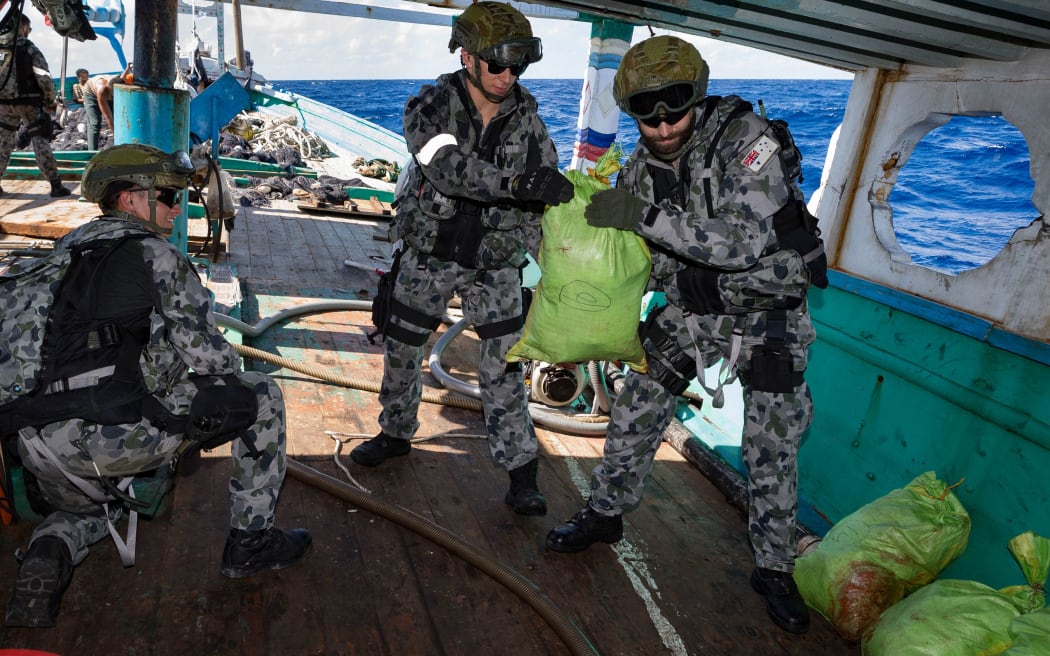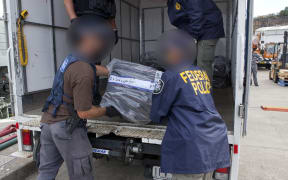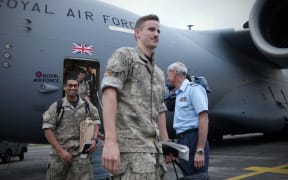The New Zealand Defence Force (NZDF) is describing a joint operation to seize 250kg of heroin off the coast of Tanzania as a blow against terrorism.

A Royal New Zealand Air Force P-3 Orion has helped a multinational task force seize about $400m worth of heroin. Photo: Supplied
It is the second bust in two weeks, bringing the total value seized to about $400 million.
A Royal New Zealand Air Force P-3 Orion spotted a suspect vessel while patrolling the Indian Ocean, which was then intercepted by a Royal Australian Navy frigate on Wednesday.
Earlier this month, the Orion located two vessels in the Indian Ocean that were trafficking 400kg of heroin, worth about $220m.

The Australian boarding party seized 250kg of heroin from the suspect ship on Wednesday, NZDF said. Photo: Australian Defence Force
New Zealand joint forces commander Major General Tim Gall said disrupting profitable drug routes helped cut off revenue streams for the Taliban, Al Qaeda and the Islamic State group.
"Drugs have a fair bit to do with the funding of terrorism in the Middle East," Maj Gen Gall said.
"The more that drug traffic can be limited, obviously, has a positive benefit because those drugs end up in the West, but [it] also helps to take away the risk of terrorism.
"All of these drugs come off the Iranian and Pakistani coasts, usually by dhows [small sail boats)... we have some understanding of when there are favourable winds that allow those dhows to leave.
"A certain number of days later, they'll appear down in the African coast in one of two places: either further north, and that's called the 'hash highway', or further south, which is called the 'smack track'."
The "smack track" was off the Tanzanian and Kenyan coasts, which was where the latest heroin seizures had taken place, he said.
Maj Gen Gall said he suspected patrolling forces only ever found a small percentage of what was out there.
"You're probably never going to stop it completely, but if you can provide some effective deterrence then you make people think twice, when they're going to lose their ships ... It's something you have to keep at."
New Zealand is relatively remote and has defence limitations, but Maj Gen Gall said this sort of contribution was part of being a "good global citizen".
"It's something useful we can do."
The NZDF mainly worked with France, Australia, Canada and the United Kingdom on counter-narcotics operations in the Indian Ocean, he said.
New Zealand's coalition partners, especially the United States, were focused on the "actual fight" in Iraq and Syria, he said.
"This is something that we can do and it fits in well with the capability of our aircraft which is very much optimised for that surface-surveillance role," he said.
The P-3 Orion crew, which changed every three or four months, was currently based in Seychelles.



